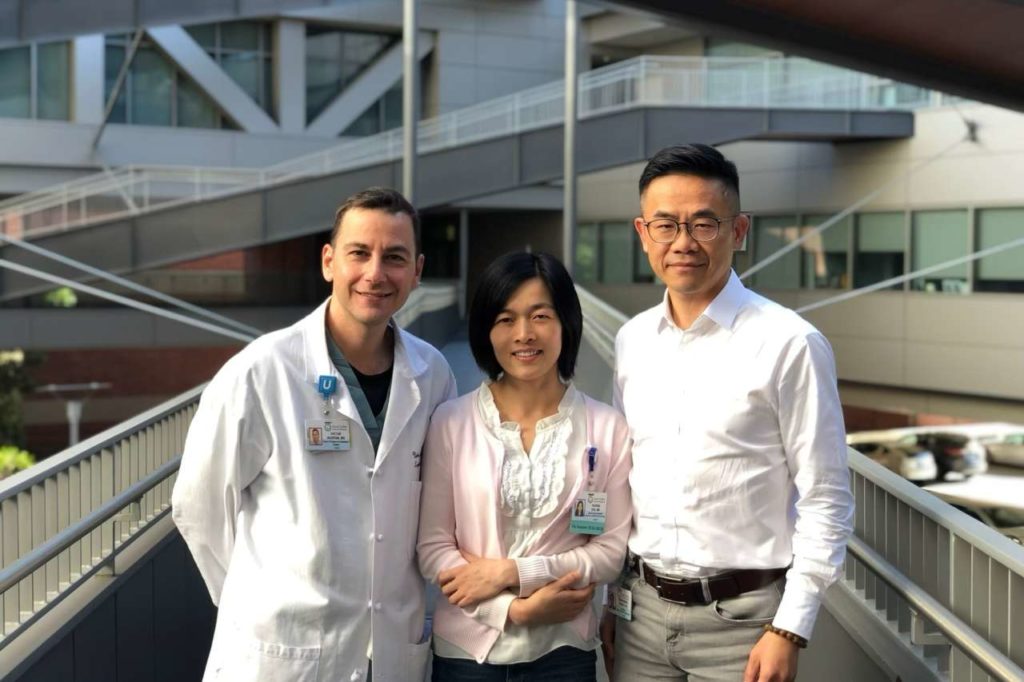New liquid biopsy and machine learning tools offer new ways for healthcare leaders to improve liver cancer outcomes
Recent research into liquid biopsies has resulted in a new blood test that can detect liver cancer while it is still in an early stage. This research will enable healthcare and oncology leaders to detect liver cancer earlier and at less expense than existing methods. It also has implications for the developing world, where liver cancer is more common and harder to detect.
Hepatocellular carcinoma (HCC) is the most common form of liver cancer and the third leading cause of cancer death globally. While HCC can be treated with a high rate of success if detected early, the cancer does not create symptoms until it is quite advanced and is often difficult to screen for. This will make the newly developed liquid biopsy an invaluable precision medicine tool.
New Liquid Biopsy for Liver Cancer Highlights Work of Nano-Tech and Nano-Bionics

Led by UCLA Jonsson Comprehensive Cancer Center, the technological advance is credited to a team of over 50 international researchers from the University of California Los Angeles (UCLA), Cedars-Sinai Medical Center, Southern Medical University, and Suzhou Institute of Nano-tech and Nano-bionics.
The team’s new liquid biopsy evaluates nanoparticles called extracellular vesicles (EVs). These tiny particles are released into the bloodstream and are essentially microscopic packages that contain molecules produced by the cell that released them.
“Tumor-associated extracellular vesicles are present in circulation at relatively early stages of disease and are readily accessible across all disease stages,” said Hsian-Rong Tseng, PhD, in a UCLA press release. Tseng is one of the corresponding authors of the study recently published in Hepatology. He is also a researcher at the UCLA Jonsson Comprehensive Cancer Center and a professor in the Department of Molecular and Medical Pharmacology in the David Geffen School of Medicine at UCLA.
“The cargo of [extracellular vesicles] includes proteins, DNA, RNA, metabolites and lipids that are reflective of the tumor of origin, making [extracellular vesicles] appealing for cancer biomarker development,” Tseng continued. “Profiling of tumor-associated [extracellular vesicles] is regarded as an emerging ‘liquid biopsy’ strategy for noninvasive cancer detection.”
Improving Prognosis of Hepatocellular Carcinoma (HCC)
Researchers hope that this test can help improve the outcomes of patients who have HCC. “Prognosis of HCC is dismal, primarily due to the advanced stage at which the disease is often diagnosed,” said Vatche Agopian, MD, a liver transplant surgeon who is also a corresponding author of the study. “American Association for the Study of Liver Diseases (AASLD) guidelines recommend that at-risk patients undergo a biannual liver ultrasound to detect HCC at a curative stage, but the accuracy of ultrasound imaging remains low, with sensitivity between 60% and 70%, with a specificity of 90%. Clearly, developing noninvasive tests for early detection is desperately needed.”
While ultrasound screening sensitivity is only 60% to 70%, the accuracy of the new liquid biopsy is much higher, at 90%, according to the researchers. The test also provides results more rapidly than an ultrasound and could be easily integrated into clinical laboratories’ existing processes.
“In addition to its excellent performance, this marker has the advantages of being user-friendly, cost efficient, and having a fast turnaround time—within six hours from sample collection to result,” said Dan Theodorescu, MD, PhD, director of Cedars-Sinai Cancer in a Cedars-Sinai statement. “PCR testing technology has been widely deployed during the COVID-19 era, and once this marker has been validated in subsequent studies, it can be easily adopted by existing PCR facilities.”
Another study, published in the American Journal of Roentgenology just days after the liquid biopsy study, found that machine learning models can predict the recurrence of HCC prior to liver transplants or other treatments.
Recurring HCC is associated with poor clinical outcomes; however, there are currently no reliable methods of predicting HCC recurrence. The new research used a machine learning model to evaluate MRI images and found that this method of evaluation produced more accurately predicted HCC recurrence than a purely clinical approach did.
Combining new emerging precision medicine technologies offers healthcare leaders better ways to improve patient outcomes. Using new machine learning technology to predict patients at risk of HCC recurrence then instituting routine screening using the new liquid biopsy is one example of how combinations of new technologies offer even better opportunities than single advances alone.
Healthcare leaders should not only be aware of what new precision medicine tools and technologies are becoming available but should also consider how combining these advances could benefit patients. After further validation in a larger scale of clinical study, new tools like the liver cancer liquid biopsy will offer better, more cost-effective methods of providing preventive care and optimizing patient outcomes.
—Caleb Williams
Related Information:
American Association for the Study of Liver Diseases
New Technology Aims Toward Earlier Detection of Hepatocellular Carcinoma
